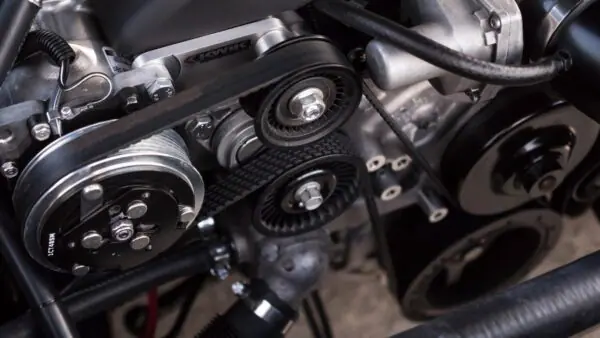Your car probably features a variety of dashboard warning lights, each of which signifies something different.
These lights serve a common purpose for your vehicle’s safety and long-term performance.
These lights warn you about potentially dangerous issues or caution you about minor problems that should be examined by a skilled mechanic as soon as possible or serve as a reminder that one or more automobile systems need routine maintenance.
The anti-lock braking system, automobile battery gauge, low engine oil, temperature gauge, brake system warning, petrol gauge, and check engine lights are common warning indications.
Find out what these lights mean to decide whether you should pull over immediately and have your car towed or safely drive to a nearby, reputable auto repair shop to diagnose and repair your vehicle.
Why Should I Choose a Blue Seal ASE Auto Repair Shop in My Area? What Is ASE Mechanic Certification?
The National Institution for Automotive Service Excellence, ASE, is a highly regarded source of education, training, and certification.
Before being qualified for testing and certification, a mechanic must adhere to the requirements set forth by ASE, which concentrates on the critical sectors of car repair, vehicle service, and automotive consulting.
To guarantee that An ASE-certified technician stays current with ever-evolving technology, ASE is extremely discriminating about which shops it recommends with its Blue Seal of Excellence and mandates that they complete continuous educational programs and recertify every five years.
If you like to be more ‘hands-on’ with your vehicle, please browse our extensive manuals library for your make and model Repair Manuals.

How to Assess and Select the Top Local Repair Facility for Your Car?
Given many options, deciding which auto repair company in your neighborhood can be challenging to trust with your car.
Online reviews, community reputation, BBB and chamber of commerce ratings, ASE certification and specializations, mechanic experience and education, quality of parts used and diagnostic equipment, conveniences offered, level of cleanliness & professionalism displayed within the facility, and recommendations from friends, family, and neighbors are just a few ways to evaluate the caliber of nearby auto shops.
Options for automotive engine replacement and repair
You have several options if your automobile or truck requires a significant engine repair.
After giving you a thorough and accurate diagnosis, our qualified engine repair technician specialists will review the best way to get your car back on the road and ensure that it performs as long as you expect.
Cost & Tips for Transmission Repair & Rebuilding
One Transmission work is one of the most expensive mechanical repairs your car could need.
Fortunately, a lot of the typical issues that cause failure can be avoided by doing timely transmission maintenance following the manufacturer’s suggested maintenance schedule for your automobile or truck.
We also review some critical distinctions between transmission cost estimates and the best questions to ask when comparing quotations.
Selecting a shop that uses high-quality parts and provides an accurate quote upfront that includes all the auto parts and services you might require is crucial. Also, the technicians back their work with a full warranty on parts and labor because this is a significant repair essential to your vehicle’s performance.
This article is to assist you in ensuring your repaired or rebuilt transmission will withstand the test of time because this is not a repair that you will want to repeat anytime soon.
Auto AC Service, Repair, and Common Issues Prevention
When it comes to the comfort of the driver and passengers, a car air conditioner makes a significant difference, so it is simple to detect problems.
Various problems can make your car’s air conditioner spew hot air, fail to circulate air effectively, or both.
Electrical (such as blown fuses or broken sensors/wires) or mechanical (including faulty components) issues with the air conditioning system are possible.
This article highlights some of the most typical concerns, their root causes, and how routine AC maintenance and inspections can help you avoid specific problems.
Electric car repair, electrical diagnosis, and hybrid vehicle repair
Hybrid or electric car diagnosis and repair requires highly specialized training, tools, and a solid foundation in automotive electrical repair.
Some of the distinctions between gas vehicles and hybrid automobiles are AC recharges, repairs, and
It also gives a general understanding of how electrically operated auto air conditioning parts, like the electronic control module and compressor, function.
Visible Indicators of Automotive Issues
If you know what to look for, spotting many warning signs of auto issues is simple.
For instance, depending on the color of the smoke, anomalous exhaust pipe smoke may be a sign of cooling system issues, a head gasket failure, or an engine repair is required.
Before significant parts need to fix due to damage, you can identify several problems early.
Regularly inspecting the area underneath your car for leaks is a good practice.
Locate a leak by evaluating the color, smell, or viscosity of the leaking fluid and where it is leaking underneath the car.










